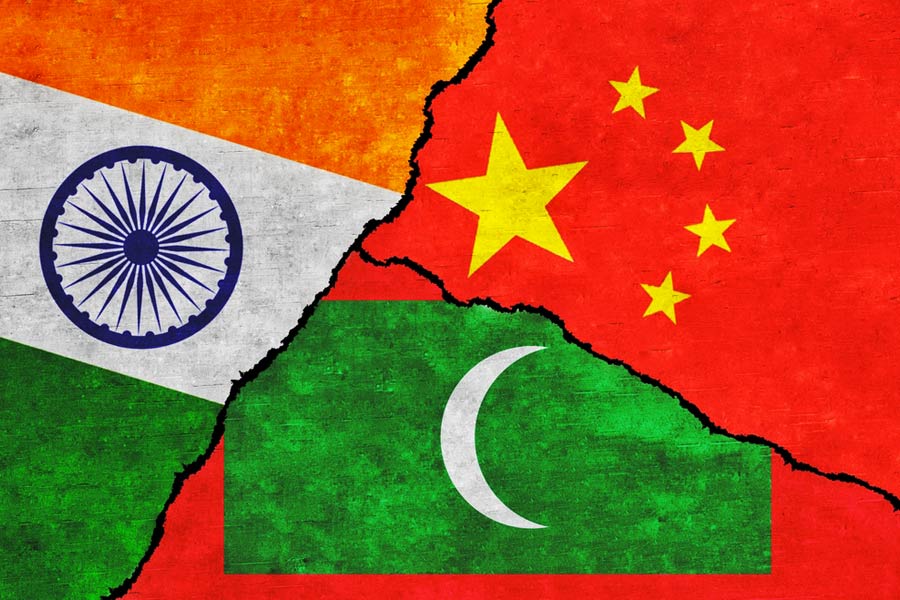The Maldives on Wednesday said both India and China have agreed to cooperate in efforts to pay for imports in their respective countries’ currency instead of the US dollar, which is likely to help Male save almost 50 per cent of the annual USD 1.5 million imports bill from the two countries.
Maldives’ Economic Development Minister Mohamed Saeed said he met with the Indian High Commissioner Munu Mahawar two weeks ago, who in turn, said that New Delhi would support and cooperate in arranging for the settlement of import payments in Indian Rupee.
Similarly, Saeed said, he received a letter from China’s Commerce Ministry, two days ago, in which Beijing provided assurance it will cooperate in allowing the option to settle import payments in Yuan, the Chinese currency, as requested by President Mohamed Muizzu.
Annually, Maldives imports goods worth USD 780 million and USD 720 million from India and China respectively, the minister had said in April when he had first announced that the Maldives was discussing with India and China if the island nation can make payments for its imports from the country in Maldivian Rufiyaa.
International trade between two countries in local currency is a mutually beneficial mechanism as it helps in saving each other’s foreign exchange reserves. Moreover, the move will mark a significant shift away from the dominant use of the US dollar in international transactions.
In July 2023, the Government of India declared that Maldives was among the 22 countries that were permitted by the Reserve Bank of India to open Special Rupee Vostro Accounts (SRVAs) as part of efforts to promote bilateral trade in local currencies.
News portal Sun.mv on Wednesday quoted Saeed as speaking with state-run PSM Media: “Maldives imports between USD 600-700 million in commodities from both India and China, each year. Therefore, we import around USD 1.4 billion to USD 1.5 billion in commodities annually, from both markets combined.” “We are negotiating with both sides to make arrangements for us so that, for example, for imports from China, the shipping company can bring the invoice and the payment can be settled by converting Maldivian Rufiyaa to their local currency through the banks, instead of US dollar,” Saeed said, adding, it will save up to 50 per cent from the annual USD 1.5 million in imports from the two countries.
“If we can arrange up to USD 300 million from each country, that means USD 700 million. This means we can eliminate the reliance on US dollars by that amount in the future. That will reduce the demand for dollars. And the future demand for dollars will continue to fall,” Saeed was quoted as saying by Sun.mv.
Saeed blamed the poor state of finances on the former administration and agreed that challenges persist as foreign countries are still skeptical about the Maldives but “it is slowly improving.” The new Maldivian administration has said that the country’s economic situation was “alarming”, but that the government was implementing strong fiscal reforms to rectify the issue, including stopping printing money.
Earlier in April, during campaigning ahead of the parliamentary polls, Saeed had said that if the ruling party was able to secure a majority in Parliament, they would be able to bring “the dollar rate back down to official market values within approximately two years.” President Muizzu-led People’s National Congress (PNC) secured a clear majority in the 87-member People's Majlis.
Except for the headline, this story has not been edited by The Telegraph Online staff and has been published from a syndicated feed.










